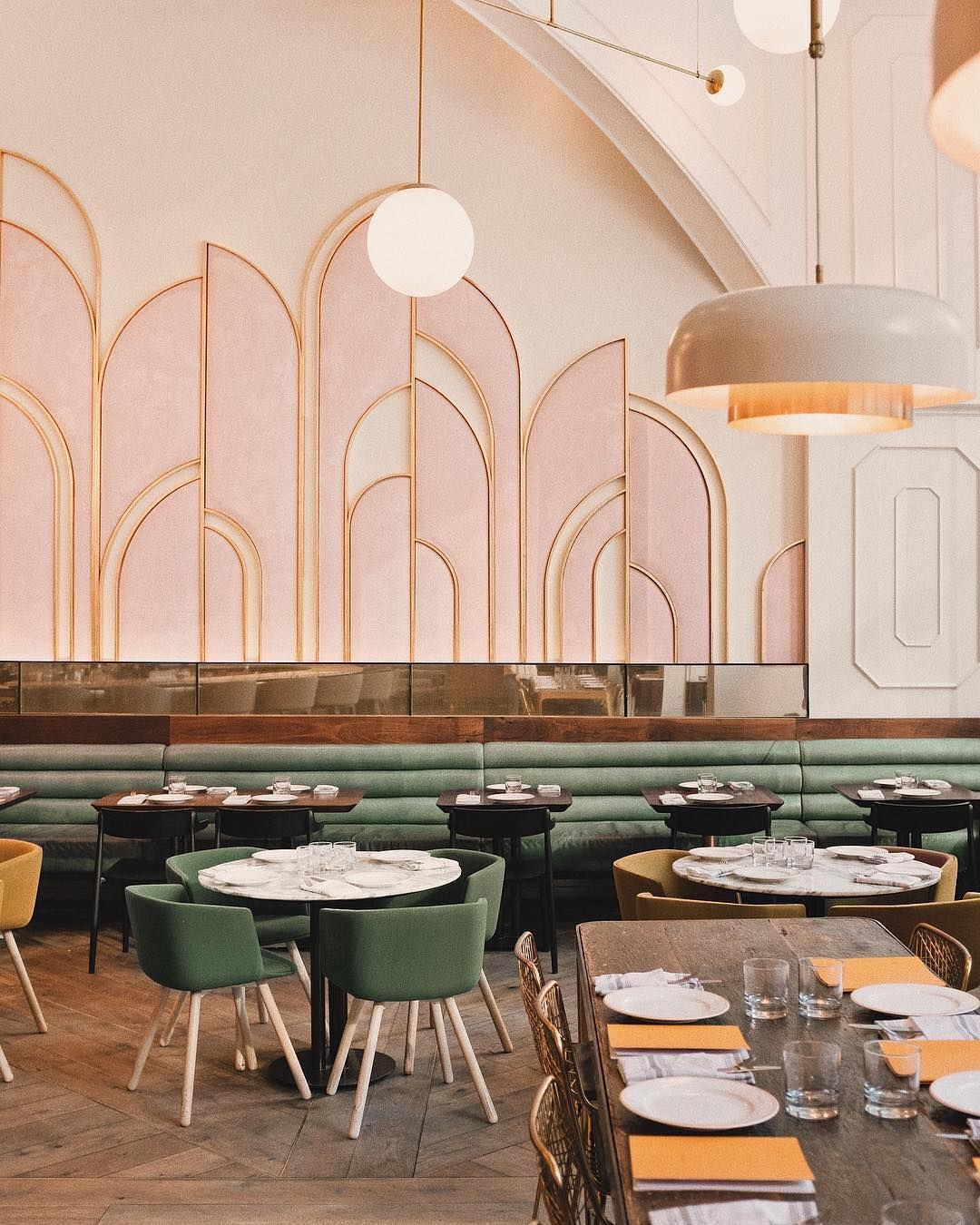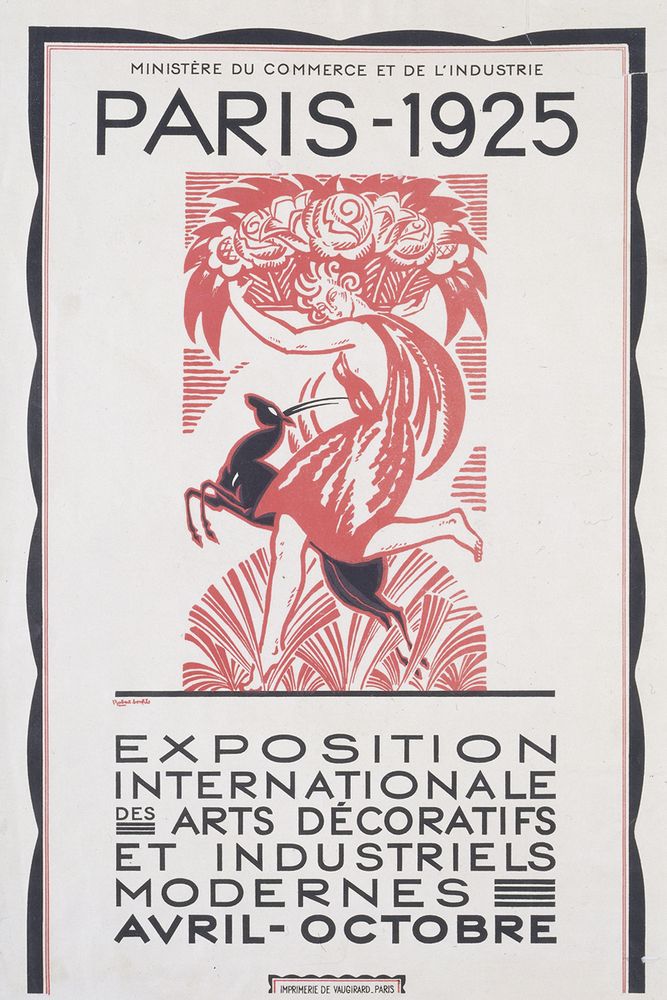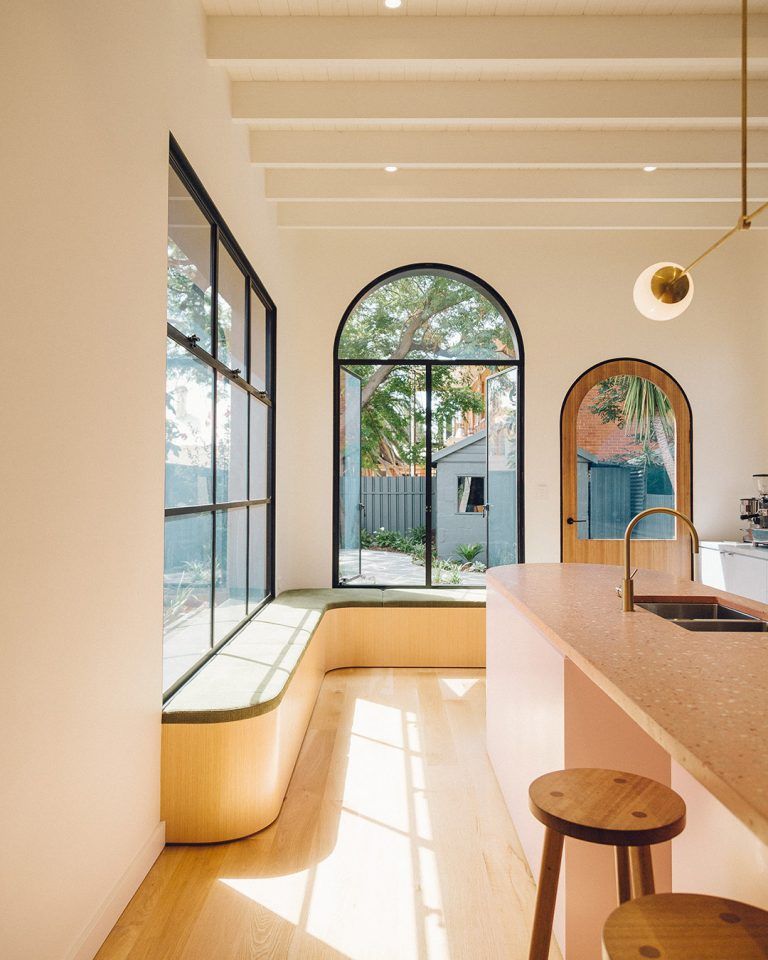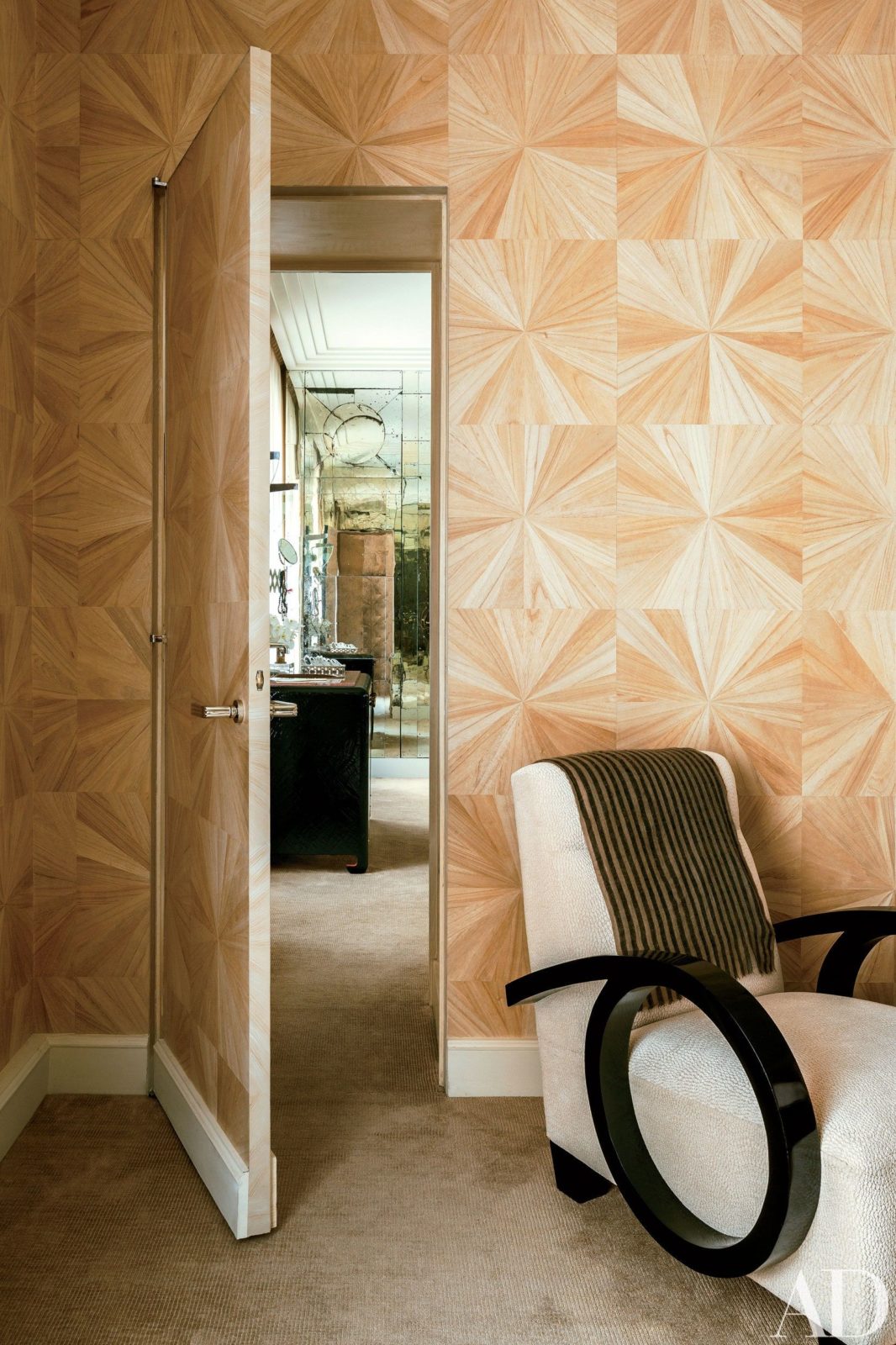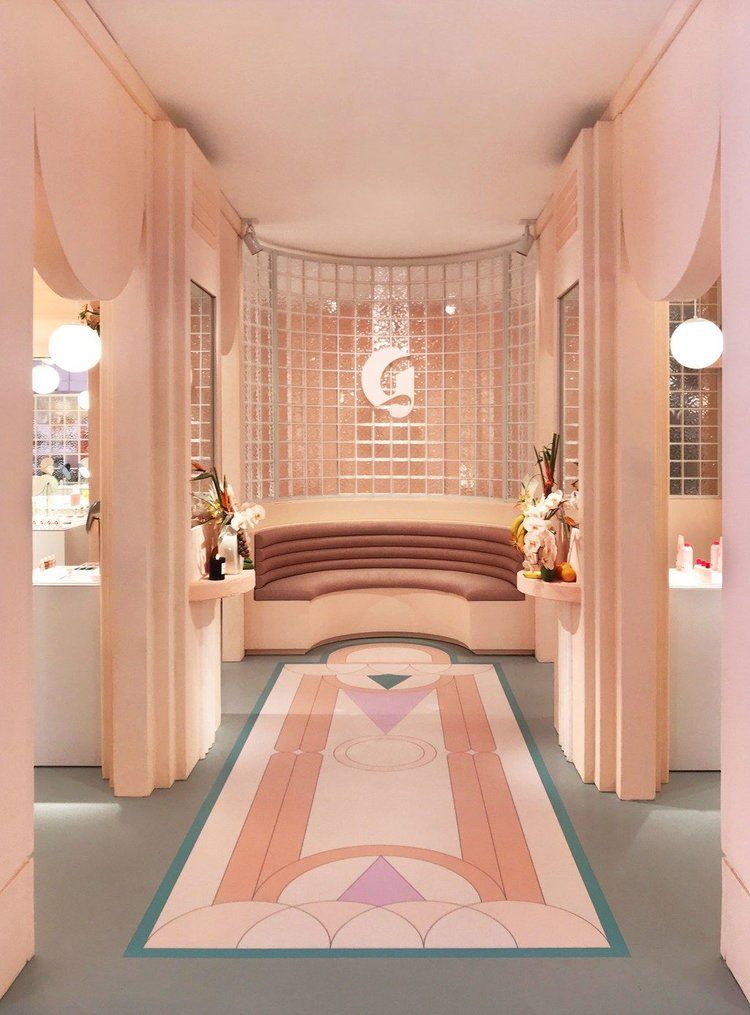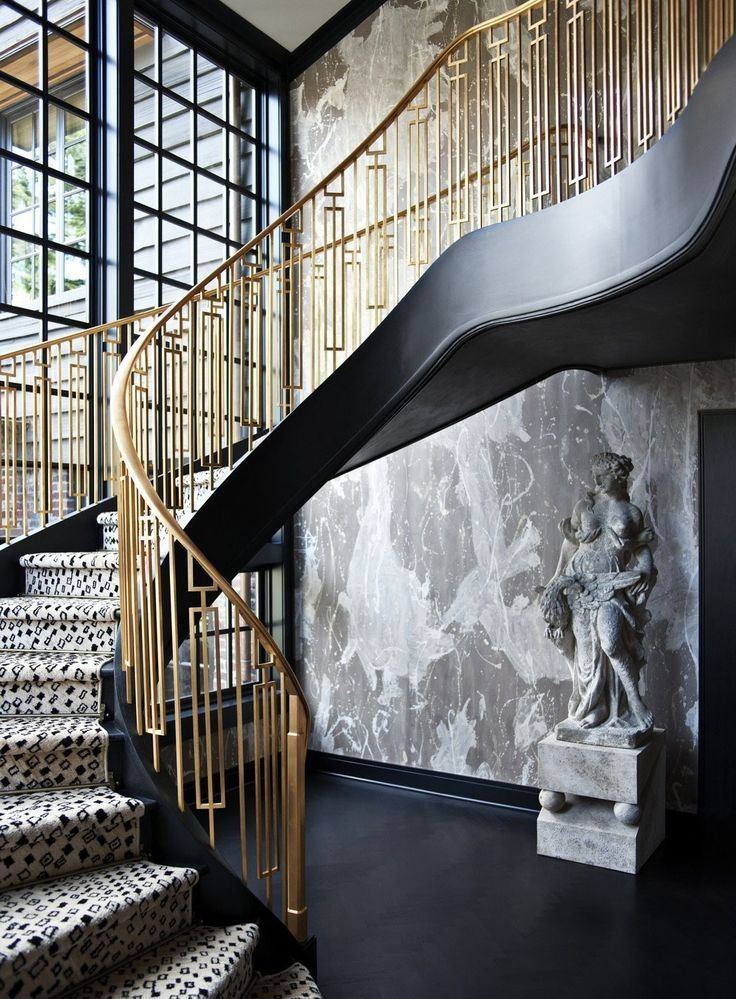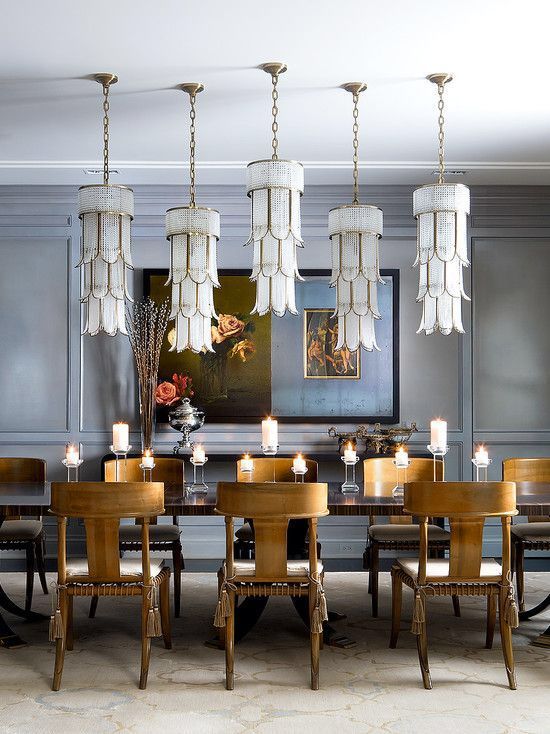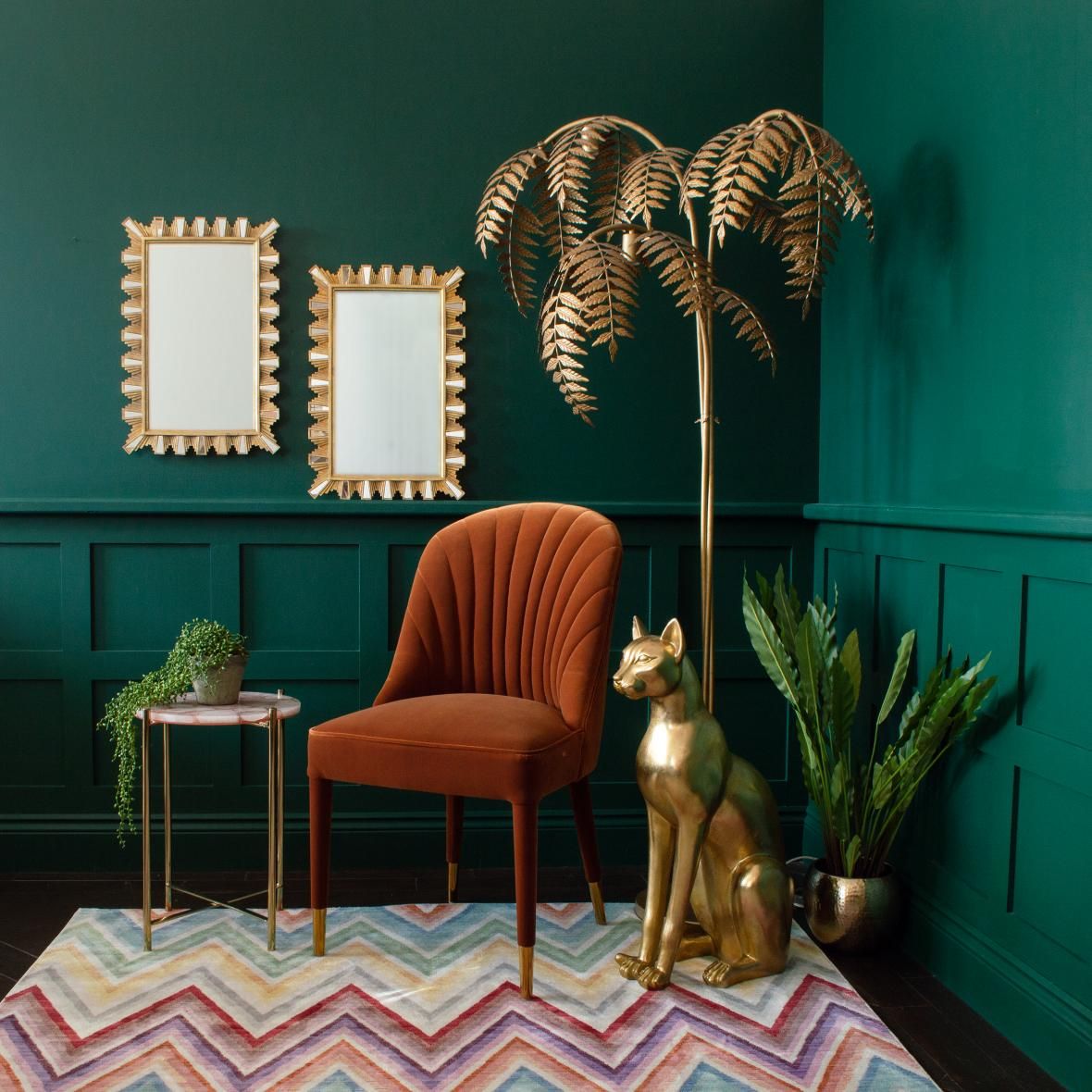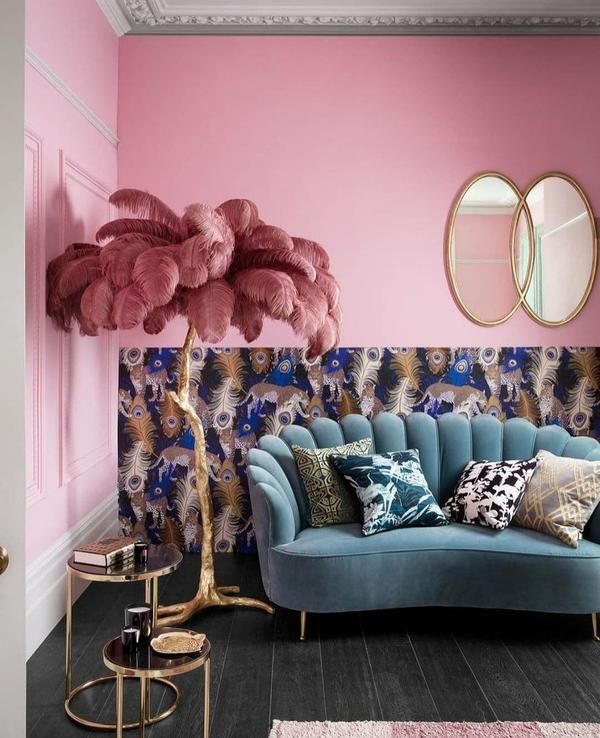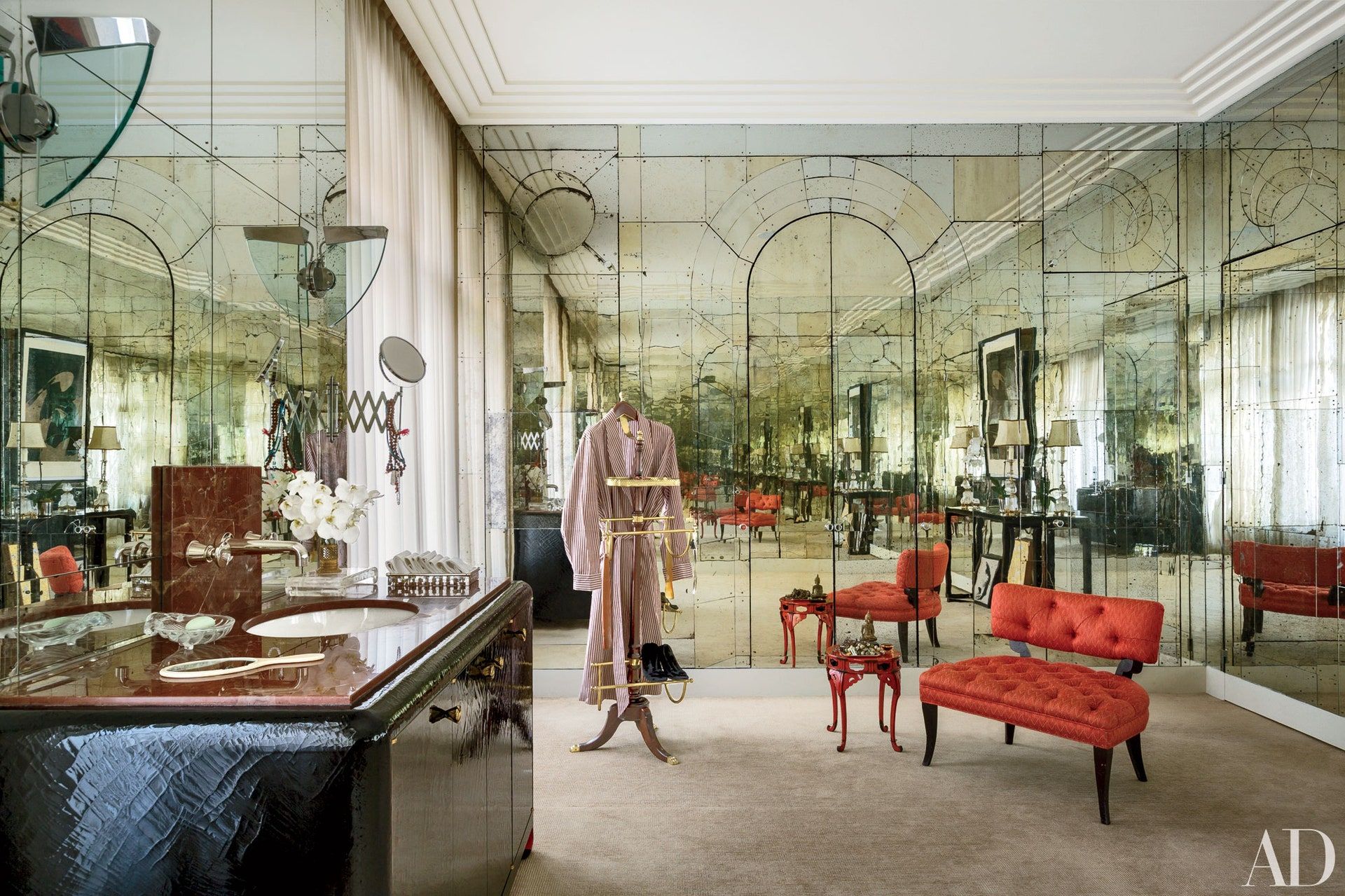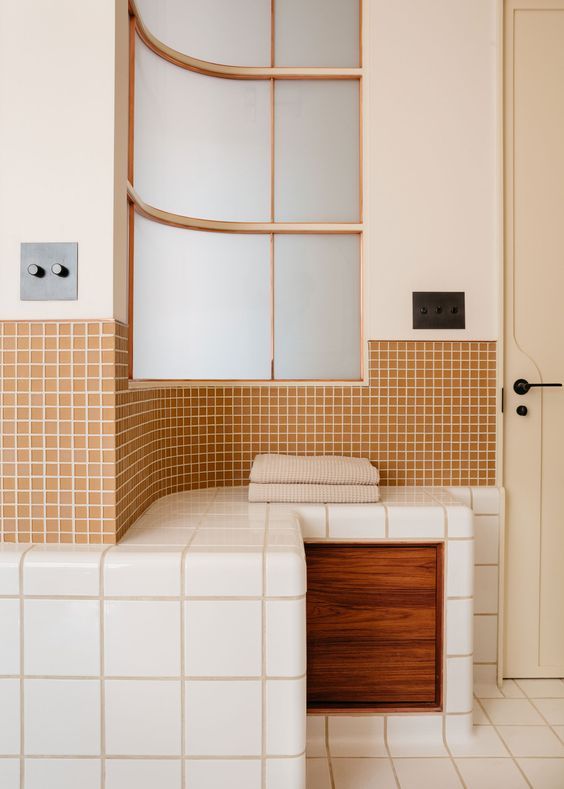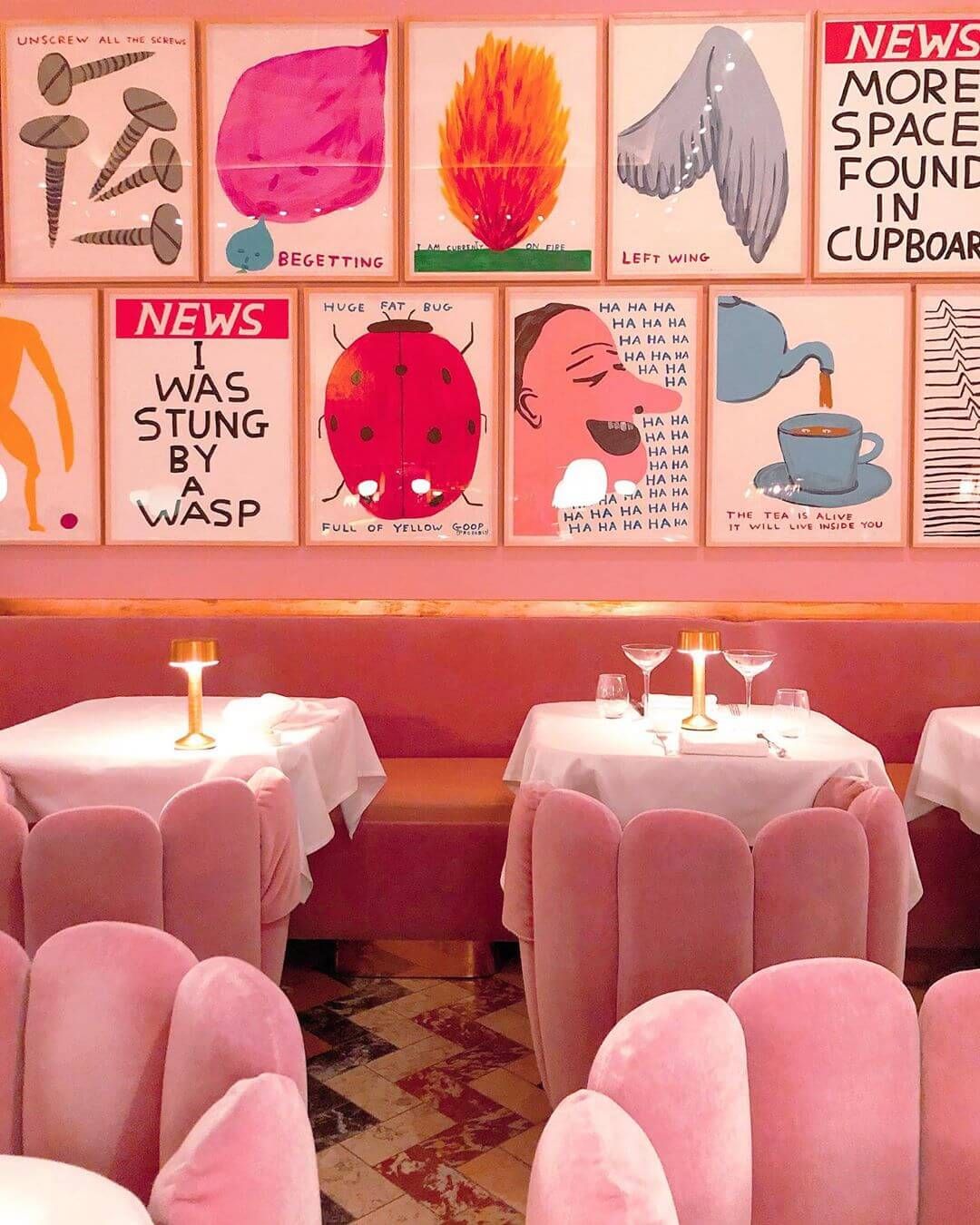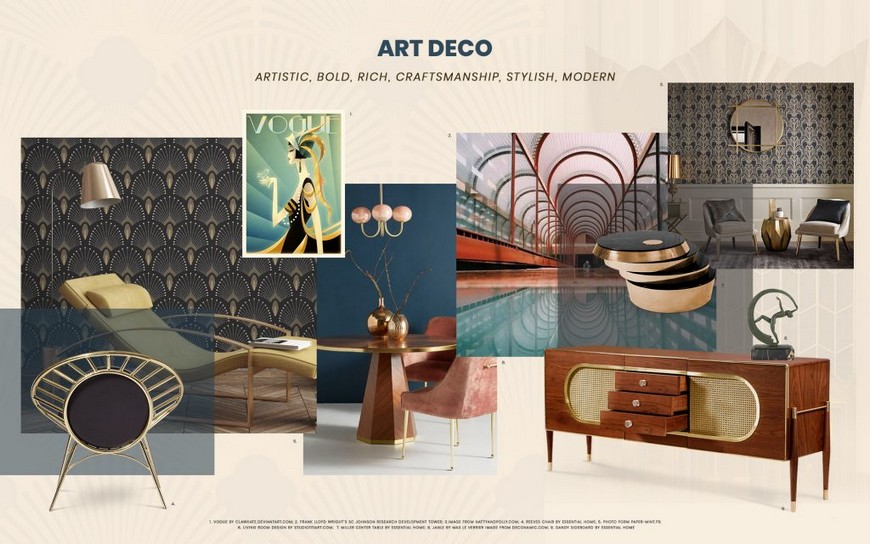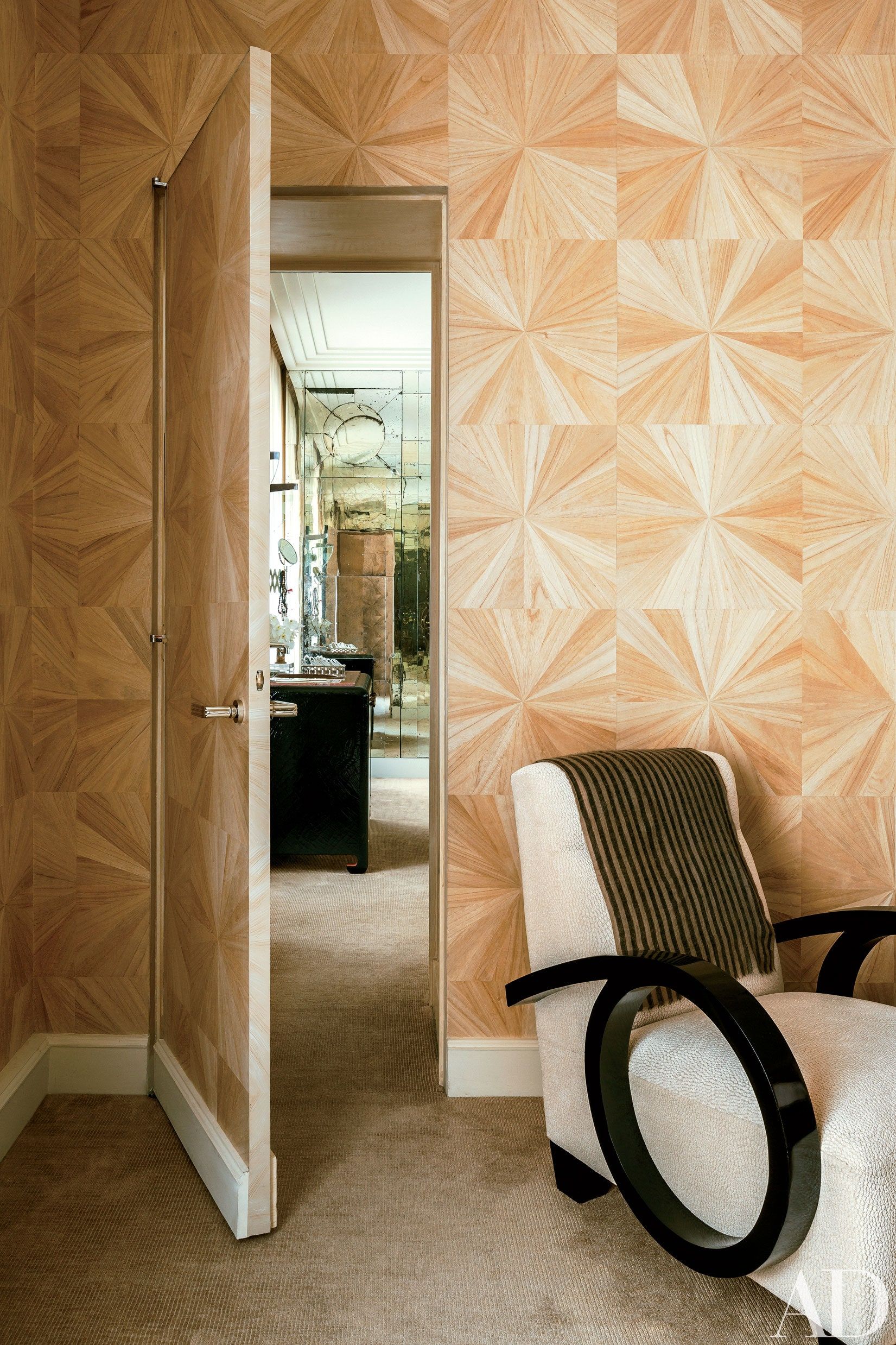Just the right mix of luxurious, bold, and functional: Art Deco was one of the defining art movements of the 20th century, and it is still trending in our modern-day. From the 1920s till the 1940s, it was the dominating style on both exteriors and interiors—most probably for the glamour and elegance it brings. It is definitely one of the things you need to learn about before becoming an interior designer.
“Glamour is an imaginative process that creates a specific emotional response: a sharp mixture of projection, longing, admiration and aspiration. It evokes an audience’s hopes and dreams and makes them seem attainable, all the while maintaining enough distance to sustain the fantasy”
— VIRGINIA POSTREL
Perhaps this is why Deco is still adapted in the 21st Century designs; it is attractive in a mysterious way. This beauty encouraged artists of all kinds to apply Art Deco in whatever art they are doing; if something can be designed, it can be designed in the Art Deco style. From interiors, buildings, cars, jewelry, and even graphic design projects; you can find Art Deco versions of them.
Short for Arts Décoratifs, Art Deco style is featured by rich colors, bold geometry, absolute details, and symmetrical shapes. The original form of the style can be found in some Rio de Janeiro and Paris buildings that still have their furniture pieces and wall coverings.
Nowadays, you can adopt Art Deco in your contemporary space; you can go for floor to ceiling adoption, or for adding one or two furniture pieces to add some glamour. Keep reading to find out how!
What defines the Art Deco style?
- Bold geometric shapes
- Triangular shapes
- Zigzags
- Trapezoidal shapes
- Straight and smooth lines
- Popping and vibrant colors
- Streamlined and sleek forms
- Sunburst or sunrise motifs
- Animal Prints
- Exaggerated curves
- Hard edges
- Low reliefs
- Stepped forms
- Chevron (inverted, V-shaped mark) arrangements
- Ziggurat patterns
- Stylized, floral patterns
Who started Art Art Deco ?
Just after the First World War and in the midst of France’s struggles and losses, the French wanted to look more optimistically into their future, starting with the 1925 Exposition Internationale des Arts Décoratifs et Industriels Modernes (International Exposition of Decorative Arts and Modern Industries); an annual world fair held in Paris, France. It is from this exhibition Art Deco derived its name.
The world exhibition was led by its founders Hector Guimard, Eugene Grasset, Raoul Lachenal, Paul Follot, Maurice Dufrene, and Emile Decour, some of whom were previously involved in Art Nouveau.
Unlike the art movements prior to Art Deco, it was not derived from some philosophical basis—it was only about being decorative. However, it took a hint from several major artistic styles: the geometric forms of Cubism, the machine-style forms of Constructivism and Futurism, and the unifying theme of Art Nouveau. While its bold colors look somehow like the Parisian Fauvism color palette. Art Deco also took inspiration from Egyptian Art and Classical Antiquity.
How to Bring Art Deco Into Your Space? 10 Tips
-
Go for streamlined shapes.
The streamlined forms and shapes with no frills are one of the characteristics of the Art Deco movement. Go for clean lines and clear forms in the furniture and decorative elements. This does not mean you go all the way to minimalistic looks -this is not Art Deco, obviously- however, you can call these elements a more vintage version of today’s minimalistic furniture.
-
Spread some geometrical patterns to the wallpaper.
When you think of art deco you immediately think of gold leaf, geometric patterns, and opulent jewel-like tones. For the ultimate in art deco style why not add some gilded, patterned wallpaper into your home. Wallpaper is perfect for achieving statement-making results anywhere from the bathroom right through to the living room.
-
And also feminine curves.
Adding some feminine softness to the walls design, furniture, and decorative pieces will very easily make the Art Deco pop. You can opt for curved furniture or wall sweeps, thing and long furniture legs, mirrors, or an accent wall in a feminine color like lavender.
-
Choose smooth and sleek materials.
To achieve the desired smooth and sleek signature look in an Art Deco space, you can go for materials like stucco, concrete, smooth-faced stone, and terra cotta. Moreover, steel and aluminum are often used alongside glass blocks and decorative opaque plate glass. As a rule of thumb, the finished look would appear highly polished and metallic-like.
-
Use statement and layered lighting.
Art Deco lighting was typically made in glass and chrome, which is still a popular combination to this day, so there are a plethora of options to choose from within the Deco style. Look for geometric or angular shapes, symmetrical design, and a high-shine finish. Moreover, you can go wild pairing several chandeliers for a more powerful and bold look.
-
Opt for dramatic furniture shapes and materials.
In Art Deco, furnishings were usually of larger scale but there were fewer of them used in the floor plan. Curvaceous sofas with smooth lines and luxurious finishings in gold and velvets speak to the deco aesthetic like nothing else as does wooden furniture featuring inlaid designs in classic deco geometric and symmetrical patterns.
-
Choose a vibrant color palette.
Art Deco color schemes often center on moody, saturated tones. Create a lavish look with vibrant jewel tones such as cobalt blue, emerald, and rich purple, or apply dark gray or black paint colors to establish a striking, elegant atmosphere. Balance deeper shades with neutrals like cream and beige, and accessorize with metallic accents for brightness.
-
You can go over the top with mirrors.
Art Deco interior designs often include mirrored surfaces, which work with metallic details and elements to increase the sense of light and space in a room. A mirror that has a geometric or sunbeam shape will have strong links with the Deco movement and will act as a focal point in the room.
-
Showcase some details.
Fluted detailing shows off the clean, linear forms that are fundamental to Art Deco. Often seen on furniture and paneling, this grooved or scalloped look is popular once again. Try the texture on cabinetry in the kitchen or bathroom for a bit of opulence, or use smaller fluted accessories such as vases or light fixtures to add dimension.
-
Accentuate with bold artwork and decorative pieces.
Art Deco celebrates grandeur and drama, and art is one of the best ways to demonstrate that. Make a statement with prominently placed artwork in high-contrast hues, or display sculptural accents that embody the style’s sleek look. Besides attracting the eye, an interesting piece of art can also be a great conversation starter.
courtesy by Foogo
Courtesy of the Victoria and Albert Museum
Courtesy of Audenza
Courtesy of Sac Arc Studio
Courtesy of Lodamer
Courtesy of Audrey Rivet
Courtesy of Glassier
Courtesy of Elle Decor
Courtesy of Ricardo Labougle
Courtesy of Ricardo Labougle
Courtesy of Zillow
Courtesy of San Arc Studio
Courtesy of Christi Tasker


